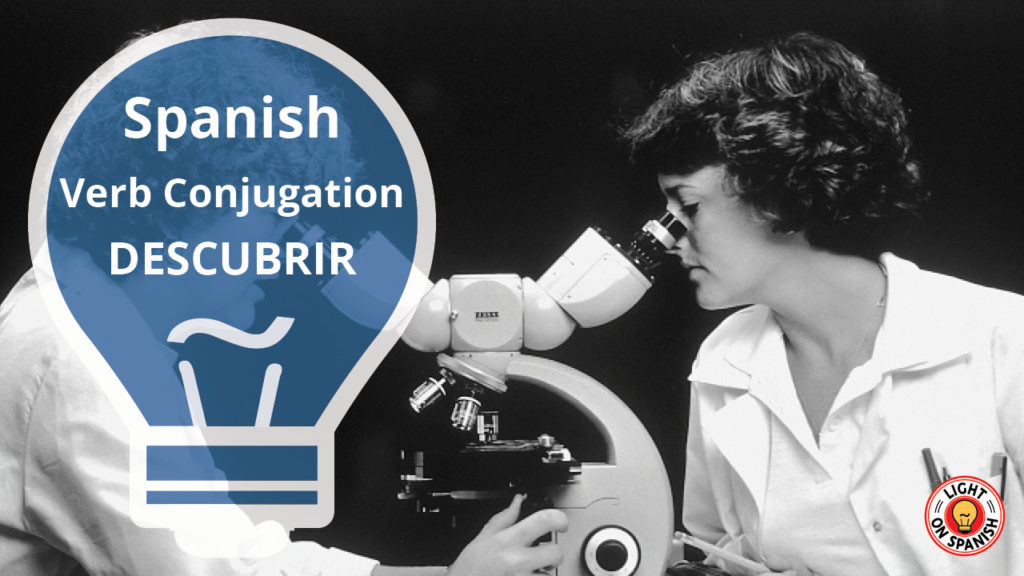Learn the Conjugation of Spanish Verb DESCUBRIR
descubrir: to discover, to find, to find out, to uncover IMPERSONAL FORMS COMPOUND INFINITIVE COMPOUND INFINITIVE descubrir [to discover] haber descubierto [to have discovered] GERUND COMPOUND GERUND descubriendo [discovering] habiendo descubierto [having discovered] PAST PARTICIPLE descubierto [discovered] [ Key: verb root / ending / irregularities / stress ] PRESENT TENSE – indicative yo descubro tú […]
Learn the Conjugation of Spanish Verb DESCUBRIR Read More »










